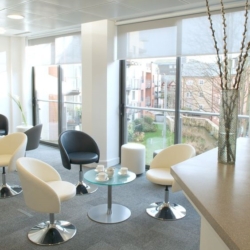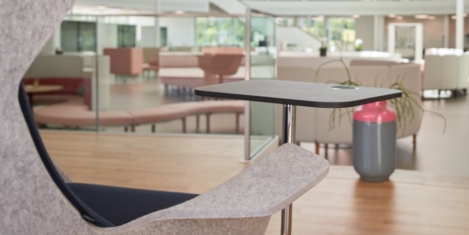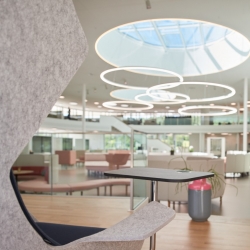To provide the best experiences, we use technologies like cookies to store and/or access device information. Consenting to these technologies will allow us to process data such as browsing behaviour or unique IDs on this site. Not consenting or withdrawing consent, may adversely affect certain features and functions.
The technical storage or access is strictly necessary for the legitimate purpose of enabling the use of a specific service explicitly requested by the subscriber or user, or for the sole purpose of carrying out the transmission of a communication over an electronic communications network.
The technical storage or access is necessary for the legitimate purpose of storing preferences that are not requested by the subscriber or user.
The technical storage or access that is used exclusively for statistical purposes.
The technical storage or access that is used exclusively for anonymous statistical purposes. Without a subpoena, voluntary compliance on the part of your Internet Service Provider, or additional records from a third party, information stored or retrieved for this purpose alone cannot usually be used to identify you.
The technical storage or access is required to create user profiles to send advertising, or to track the user on a website or across several websites for similar marketing purposes.
 Friendships at work have long been a debated topic pre-COVID: arguments either side profess these to be both conducive or a hindrance to productivity and creativity. Yet, according to research into the state of employee wellbeing conducted by Perkbox, 45 percent of 1,296 respondents say that maintaining emotional wellbeing still remains one of the biggest remote work challenges facing businesses, with 65 percent believing that workplace friendships – now even more critical in the ‘new working world’ – are suffering. (more…)
Friendships at work have long been a debated topic pre-COVID: arguments either side profess these to be both conducive or a hindrance to productivity and creativity. Yet, according to research into the state of employee wellbeing conducted by Perkbox, 45 percent of 1,296 respondents say that maintaining emotional wellbeing still remains one of the biggest remote work challenges facing businesses, with 65 percent believing that workplace friendships – now even more critical in the ‘new working world’ – are suffering. (more…)









 A new report from
A new report from 
























August 28, 2020
A new social contract can improve the everyday experience of work
by Mark Spratt • Comment, Workplace